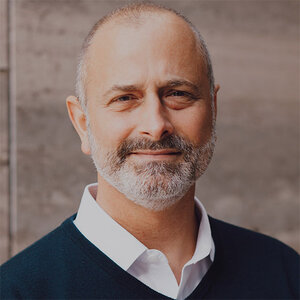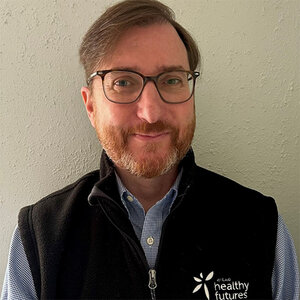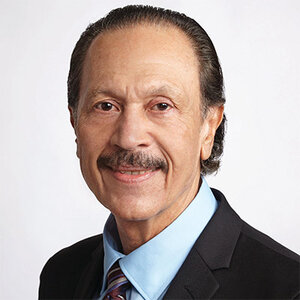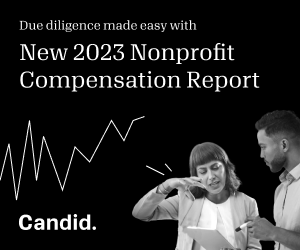To improve the mental health of children and youth, invest in grassroots groups

Children and youth today are facing an onslaught of challenges that negatively impact their mental health.
While my teenage sons have the advantage of being in a community with people from all over the world and their schoolmates express their gender identities and sexuality more freely than we could in our youth, other changes are not at all positive. An increasing number of conflict- and climate-fueled catastrophes appear to be a certain part of our future. Many young people are working to address them. Others are just struggling to get through each day. All of them need urgent attention and support as the largest youth generation in history grapples with seismic shifts and new challenges.
Young people today are coping with problems exacerbated by the COVID-19 pandemic, including social isolation, an increase in poverty, and a rise in violence at home. They are deeply engaged in social media, which has its conveniences and advantages, even as the U.S. surgeon general warns it can harm their mental health at a critical stage in their development. They are deeply worried about climate change and already experiencing its effects. In far too many countries around the world, they endure war and forced migration.
At Global Fund for Children (GFC), many of the grassroots organizations with which we partner are increasingly concerned about the mental health of the children and youth they serve. And the statistics are alarming. One in seven adolescents worldwide are believed to have a mental health condition, according to the World Health Organization, although many have not been diagnosed or treated, and UNICEF reports that suicide is the fourth most common cause of death for teenagers.
This month, as we mark World Mental Health Day, much of the attention is on the need for better public policies and more funding for mental health services in schools. And it should be. These approaches are critical to improving young people’s mental health. But there is no way these processes can move fast enough to help young people experiencing mental health issues right now.
Right now, grassroots groups play an important, immediate, yet undervalued role in improving the mental health and well-being of children and youth. They have a deep understanding of local challenges as well as local attitudes toward mental health, including the stigmas that all too often prevent young people from seeking help. Crucially, they have creative solutions to engage children who might not be willing or able to access traditional mental health services, particularly boys and young men, who are less likely than girls to seek mental health support.
In Chiapas, Mexico, for example, unhealthy ideas about masculinity, combined with racism and discrimination, negatively impact the mental health of Indigenous youth. Every year, more than 420 young men between the ages of 15 and 29 commit suicide. In 2020, GFC supported Voces Mesoamericanas in launching the School of Healthy Masculinity to offer young Indigenous men a space to promote healthy relationships, reflect on the challenges facing their communities, and develop ideas to address harmful patriarchal practices. The school recruits facilitators from the local community and offers most of its activities in Tzotzil, a Mayan language, to ensure that its programs are culturally relevant. To date, all participants have reported improved mental health and healthier relationships. But the young men aren’t the only ones who have benefitted. Gender violence has decreased significantly, and the community has created more decision-making spaces for women.
For Tusekwile Imiti Ikula Foundation (TIIF) in Zambia, which offers education programs to children in the remote area of Isoka, video game language proved the best way to reach struggling kids. When economic difficulties exacerbated by the pandemic put pressure on children to help support their families, TIIF saw many withdraw from social interaction and struggle to concentrate in school. The organization created a toolkit to help them develop a vocabulary to talk about their emotions using terms like “epic wins,” “power ups,” and “battling bad guys.”
In addition to providing programs tailored to local children and youth, grassroots organizations are also helping entire communities talk openly about mental health challenges.
In the village of Nandwal in India’s Kolhapur district, the nonprofit Avani is supporting a community-driven response to issues impacting children and youth. When the local community expressed concern about the recent suicides of six men, including several young men, Avani helped set up a research group comprised of people of all ages to learn more about the mental health issues affecting their community. Together, they are developing a plan to address these issues and prevent future tragedies.
Other grassroots groups are changing how mental health services are delivered to ensure young people can access them. The Warren Youth Project in Hull, England, has evolved a wide range of ways to support young people in a city that has faced enormous challenges for decades. The organization provided outdoor counseling sessions during the height of the pandemic. Now, concerned about a rise in depression and anxiety compared to pre-pandemic levels, the Warren runs an open access space for mental health in its youth center, where young people don’t need to make an appointment to speak to a counselor; they can simply drop in whenever they need support. The Warren also has a top-notch recording studio, a kitchen for young people to learn to cook, and an open café where any young person can just hang out and decompress—and seek support from the Warren staff when they are ready.
Some of the most impactful programs are the ones in which young people are not just accessing services but also leading.
I’m particularly excited about a new youth-led participatory grantmaking initiative we are launching in partnership with The Imperative. In Georgia, where Black boys and young men face discrimination, police violence, and other issues that impact their mental health, the program will recruit a panel of young Black men to design a grantmaking process and award funding to 10 to 12 local groups focused on the mental health and well-being of Black boys and young men. Here in the United States, roughly 80 percent of psychologists are white and just 5 percent are Black. Our work with The Imperative will highlight and support organizations working to bridge this gap. The young Black men in the initiative, which we plan to begin in January, will go on a healing and wellness pathway prior to selecting what strategies they want to support. In this way, their philanthropic decisions can be rooted in health and wholeness, rather than responding to trauma.
Improving the mental health of children and youth is an urgent issue worldwide, and one that will require progress on multiple fronts, including better public policies and more funding for mental health support in schools. But it is also an issue that grassroots groups are uniquely qualified to address. Let’s ensure that we’re providing these groups with the resources they need to reach the children and youth in their communities who are struggling with mental health issues—children and youth they know how to engage, and who might not otherwise have access to vital support.
John Hecklinger is president and CEO of Global Fund for Children.








Empowering displaced children through education